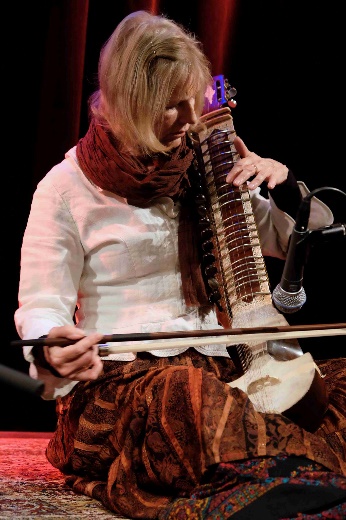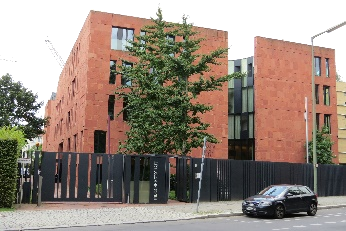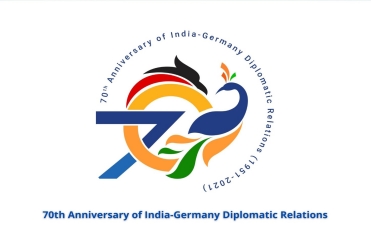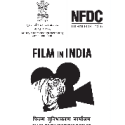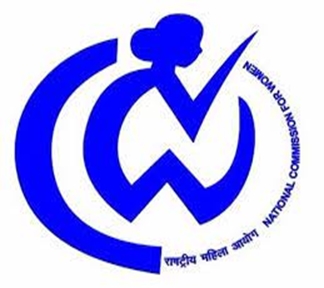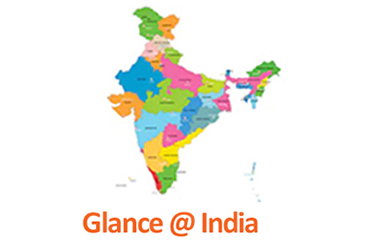- Home
- About Us
-
Consular Services
- Covid related travel requirements
- Resumption of Tourist Visa Services

- Instructions regarding entry into the consular Wing
- General Contact details
- Postal Applications
- Visa Services
- Passport Services
- OCI Information
- Renunciation of Indian Citizenship/Surrender Certificate
- Attestation,Consular and Misc.Services
- Weekly Open House
- MADAD - Consular Services Management System
- Indian Community Welfare Fund
- FAQs on Marital disputes involving NRI/PIO spouses

- Public Notices & Circulars
-
Embassy Wings
- Economic & Commercial Wing
- Contacts
- Overview of Indian Economy
- India-Germany Economic & Commercial Relations
- Doing Business in India
- Make in India

- Invest India

- Flagship Programs of Government of India

- Doing Business in Germany
- Trade Fairs
- Trade Dispute Advisory
- Foreign Investment
- Foreign Trade
- Newsletters

- Attestation of Documents

- Community Welfare
- Culture
- Information Wing/Media Center
- Science & Technology

- Political
- Consular
- Defence Wing
- Economic & Commercial Wing
-
Media Center
- e-books

- India Perspectives

- Documentaries

- Constitution Day 2022
- Calendar of Activities
- Press Releases
- News Articles
- Constitution Day
- Flag Code of India and Prevention Insults National Honour Act, 1971
- INDIA @THE UN SECURITY COUNCIL 2021-2022
- Important statements by policy-makers in India

- Photo Gallery
- Yoga

- e-books
- India-Germany Relations
- MIIM
- Useful Links
- Tenders
02 November 2017: esraj
|
Thursday
02 November 2017 18:00 hrs Auditorium |
|
Concert
HINDUSTANI RAGAS
Elena Kubi?ková Esraj
Yatziv Caspi Tabla
|
Indian classical music is bound by the melodic system ofagas and rhythmic system of t alas. A raga is a specific melodic unit based on one of many Indian scales and determined by the notes used, their ascending and descending sequences, hierarchy of importance, in association with a time of the day or night and emotions.
The Esraj is a bowed traditional Indian string instrument. It has 19 strings, four are main strings and the rest is formed into two octaves of resonant strings tuned into given gamut.
Tabla is a set of two drums. The drum on the right side is called dayan and is tuned in the key tonic. The left-side drum is called bayan and is tuned into bass.
>Elena Kubi?ková, a Czech Indian classical music performer playing the esraj, will present ragas of North India. The performance of a raga consists of the slow opening part called the alap, played by the soloist, which is followed by composed and improvised parts of the gat, organized to fit into a particular tala, played by a tabla player. The musicians play usually two gats in various tempi, they must understand both raga and tala thoroughly and obey their constraints to create the improvisations. Elena studied classical violin and was a member of a string chamber orchestra. In Hindustani classical music she was educated first by violinist and musicologist prof. Dr. Smarajit Chakravorty, in India she studied under Dr. Jibendra Narayan Goswami (sitar maestro) and Dr. V. Balaji (singer and violinist in Benares). She playes the esraj since 1990. Together with other musicians she released several CDs of which several have been used as film music, for example for the three-part film by Igor Chaun „A Passage to India“. She has also appeared in Poland, Germany and Italy. Elena collaborates with an important Czech tabla player Tomáš Reindl, Edward Powell, a Canadian sitar and other oriental instruments player living in Czech Republic and other musicians. The great honour for her was the collaboration with Dr. J. N. Goswami, with whom and his Indian tablaist she performed Jugalbandi in Prague and at the International Opera Festival Smetanova Litomyšl in 2006. Elena regularly gives concerts of Indian classical music in many places of the Czech Republic. Elena is also propagating Indian ragas through lecturer (e.g. Charles University in Prague). For some years she took part in joint music-and-dance project DAMARU launched by Ivana Hessová, dancer and instructor of classical Indian dance kathak. For fifteen years she has been preparing regular night programs of Indian classical music on the Czech National Radio Station „Vltava“.
Born in 1979,Israel, Yatziv Kaspistarted showing interest in drumming right from day one. He officially attended drum lessons at the age of 6, and for 15 years, he had studied music and drumming in various institutes in his home town. During that time Yatziv got exposed to the world of percussion, and especially the oriental and far east music. He was first introduced to the Tabla at the age of 17, by his teacher, Sanjay Sharma, with whom he spent 6 years learning, playing and acquiring the knowledge of the Indian classical music. In 2001, Yatziv expanded his studies in his 6 months' travel to north India. Ever since his return from India, Yatziv has been active as a professional drummer and a percussionist as well as a master in the art of the Tabla drum and Indian music. His diverse and unique style allows him to blend in with any type of music.Nowadays, Yatziv is based in Berlin, Germany, where he takes part in different bands and projects as well as an educator and a teacher for both drumming and Tabla playing.…………………………………………………………………………………………………………………………………………………………
Indische klassische Musik ist an das melodische System der Ragas und das rhythmische System von Talas gebunden. Ein Raga ist eine spezifische melodische Einheit, die auf einer von vielen indischen Skalen basiert und von den verwendeten Noten, ihren aufsteigenden und absteigenden Sequenzen, einer Hierarchie in Verbindung mit einer Tages- oder Nachtzeit und von Emotionen bestimmt wird.
Die Esraj ist ein gebogenes traditionelles indisches Saiteninstrument. Es hat 19 Saiten, vier sind Hauptsaiten und der Rest ist in zwei Oktaven resonanter Saiten eingefasst, die in eine bestimmte Tonleiter abgestimmt sind.
Tabla ist ein Satz von zwei Trommeln. Die Trommel auf der rechten Seite wird Dayan genannt und ist in der Tonart gestimmt. Die linke Trommel heißt Bajan und ist in Bass eingespielt.
Elena Kubi?ková, eine tschechische indische klassische Musikerin, präsentiert Ragas aus Nordindien. Die Darbietung eines Raga besteht aus dem langsamen öffnenden Teil, der vom Solisten gespielt wird, gefolgt von komponierten und improvisierten Teilen, die in eine Rhythmusfolge (Tala) passen. Die Musiker spielen normalerweise zwei Teile in verschiedenen Tempi, sie müssen sowohl Raga als auch Tala gründlich verstehen und ihren Beschränkungen folgen, um die Improvisationen zu erzeugen.
Elena studierte klassische Violine und war Mitglied eines Streicher-Kammerorchesters. In Hindustani klassischer Musik wurde sie zuerst vom Geiger und Musikwissenschaftler Prof. Dr. Smarajit Chakravorty unterrichtet, dann in Indien von Dr. Jibendra Narayan Goswami (Sitar-Maestro) und Dr. V. Balaji (Sänger und Geiger in Benares). Sie spielt seit 1990 die Esraj. Zusammen mit anderen Musikern veröffentlichte sie mehrere CDs, von denen einige als Filmmusik verwendet wurden, zum Beispiel für den dreiteiligen Film von Igor Chaun "A Passage to India". Sie ist auch in Polen, Deutschland und Italien aufgetreten. Elena arbeitet mit dem tschechischen Tablaspieler Tomáš Reindl, mit Edward Powell, einem kanadischen Sitaristen und mit anderen Instrumentalisten zusammen, die in der Tschechischen Republik leben. Die große Ehre für sie war der gemeinsame Auftritt mit Dr. JN Goswami in Prag 2006 beim Internationalen Opernfestival Smetanova Litomyšl. Elena gibt regelmäßig Konzerte indischer klassischer Musik an vielen Orten der Tschechischen Republik. Seit einigen Jahren beteiligt sie sich am gemeinsamen Musik- und Tanzprojekt DAMARU, das von Ivana Hessová, Tänzerin und Lehrerin des klassischen indischen Tanzes Kathak, ins Leben gerufen wurde. Seit fünfzehn Jahren ist sie an regelmäßigen Nachtprogrammen indischer klassischer Musik auf dem tschechischen Nationalradio "Vltava" beteiligt.
Yatziv Kaspi wurde 1979 in Israel, besuchte im Alter von 6 Jahren Schlagzeugunterricht und studierte 15 Jahre lang Musik und Schlagzeug. Während dieser Zeit kam er mit der Welt der orientalischen und fernöstlichen Perkussion in Berührung. Er wurde mit 17 Jahren von seinem Lehrer Sanjay Sharma in das Wissen über die indische klassische Musik und in das Tablaspiel eingeführt. 2001 erweiterte Yatziv seine Studien bei einem 6-monatigen Aufenthalt in Nordindien. Seitdem ist er als professioneller Schlagzeuger und Percussionist sowie als Meister in der Kunst der Tabla-Spielens und der indischen Musik tätig. Sein vielfältiger und einzigartiger Stil ermöglicht es ihm, sich mit jeder Art von Musik zu vermischen. Heute lebt Yatziv in Berlin, wo er bei verschiedenen Bands und Projekten sowie als Pädagoge und Lehrer für Drumming und Tabla teilnimmt.
|
Embassy of India Tiergartenstr. 17 10785 Berlin
Bus 200 Tiergartenstraße |
|
Free entry to all events for a maximum of 200 guests with valid Indian, German or other valid ID cards/passports having German stay permits. EU citizens may carry copies of their local registration certificate. Bags are not allowed. Information: 030-25795405
Freier Eintritt für maximal 200 Gäste mit gültigen indischen, deutschen oder anderen gültigen Personalausweisen/Reisepässen mit Aufenthaltsgenehmigung für Deutschland. Das Mitführen von Kopien ihrer örtlichen Anmeldebescheinigung ist für EU-Bürger notwendig. Taschen sind nicht erlaubt. Informationen: 030-25795405 |



